Filter by

Emergent Nested Systems A Theory of Understanding and Influencing Complex Sy…
This book presents a theory as well as methods to understand and to purposively influence complex systems. It suggests a theory of complex systems as nested systems, i. e. systems that enclose other systems and that are simultaneously enclosed by even other systems. According to the theory presented, each enclosing system emerges through time from the generative activities of the systems they e…
- Edition
- 1
- ISBN/ISSN
- 978-3-319-27550-5
- Collation
- 8 b/w illustrations, 98 illustrations in colour
- Series Title
- -
- Call Number
- -
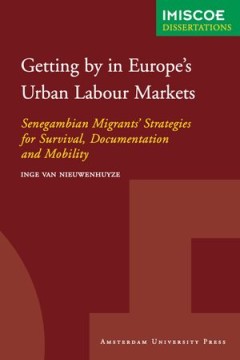
Getting by in Europe's Urban Labour Markets Senegambian Migrants' Strategies…
This book examines two major social changes experienced by European cities in the last two decades: post-industrial economic restructuring and new immigration flows. The link between both has been extensively discussed throughout a variety of theoretical approaches and in numerous descriptive contributions. Adding to those studies, this research focuses on three elements of migratory experience…
- Edition
- -
- ISBN/ISSN
- 9789089640505
- Collation
- -
- Series Title
- -
- Call Number
- -
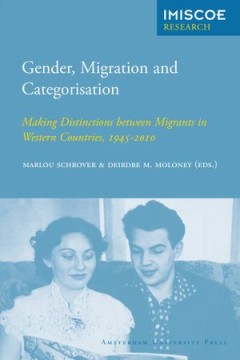
Gender, Migration and Categorisation
All people are equal, according to Thomas Jefferson, but all migrants are not. In this volume, twelve eminent scholars describe and analyse how in countries such as France, the United States, Turkey, Canada, Mexico, the Netherlands, Sweden, and Denmark distinctions were made through history between migrants and how these were justified in policies and public debates. The chapters form a triptyc…
- Edition
- -
- ISBN/ISSN
- 9789048521753
- Collation
- -
- Series Title
- -
- Call Number
- -
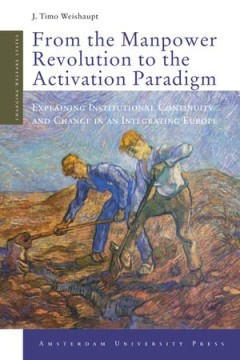
From the Manpower Revolution to the Activation Paradigm
This book examines the origins and evolution of labor market policy in Western Europe, while paying close attention to the oeCD and the European Union as proliferators of new ideas. Three phases are identified: (a) a manpower revolution phase during the 1960s and 1970s, when most European governments emulated Swedish manpower policies and introduced/modernized their public employment services; …
- Edition
- -
- ISBN/ISSN
- 9789089642523
- Collation
- -
- Series Title
- -
- Call Number
- -
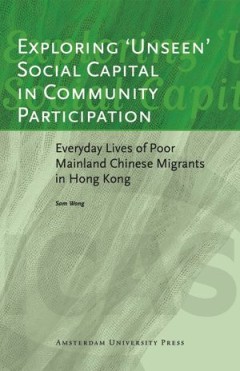
Exploring 'Unseen' Social Capital in Community Participation
https://openresearchlibrary.org/content/e2be7403-38cd-498c-8c5d-0351ac33fcff#:~:text=This%20book%20argues,makers%20and%20practitioners.
- Edition
- -
- ISBN/ISSN
- 9789053560341
- Collation
- -
- Series Title
- -
- Call Number
- -
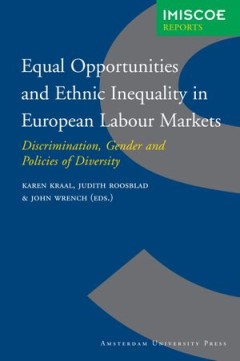
Equal Opportunities and Ethnic Inequality in European Labour Markets
The need to analyse labour market mechanisms in post-industrial Western societies is urgent. Despite laws and policy measures being developed at the European, national and local levels, job-seeking immigrants and ethnic minorities still suffer unequal access and ethnic discrimination. This volume endeavours to understand why. Four chapters dealing with discrimination, gender, equity policies an…
- Edition
- -
- ISBN/ISSN
- 9789089641267
- Collation
- -
- Series Title
- -
- Call Number
- -
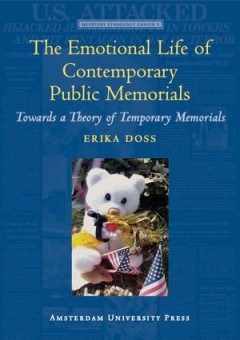
The Emotional Life of Contemporary Public Memorials Towards a Theory of Temp…
From the commemoration of September 11 to the Holocaust memorial in Berlin, recent decades have witnessed a substantial increase in the number of new public memorials built in both Europe and the United States. This volume considers the contemporary explosion of public commemoration in terms of changed cultural and social practices of mourning, memory, and public feeling. Positing memorials as …
- Edition
- -
- ISBN/ISSN
- 9789089640185
- Collation
- -
- Series Title
- -
- Call Number
- -
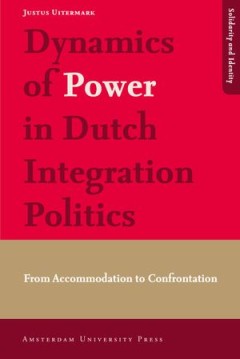
Dynamics of Power in Dutch Integration Politics
Integration politics in the Netherlands has changed dramatically between 1990 and 2005. Whereas ethnic and religious differences were hitherto pacified through accommodation, a new and increasingly powerful current in Dutch politics problematized the presence of minorities. This development represents a challenge to sociologists and political scientists: how to map and explain drastic changes? …
- Edition
- -
- ISBN/ISSN
- 9789089644060
- Collation
- -
- Series Title
- -
- Call Number
- -
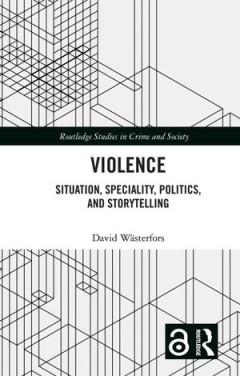
Violence: Situation, Speciality, Politics, and Storytelling
This book considers how the concept of violence has been interpreted, used, defined, and explored by social researchers and thinkers. It does not provide a final answer to the question of what violence is or how it should be explained (or prevented), and instead offers a variety of useful ways of thinking about and theorising the phenomenon, mainly from a sociological standpoint. It outlines…
- Edition
- -
- ISBN/ISSN
- 9781000624069
- Collation
- -
- Series Title
- -
- Call Number
- 364 WAS v
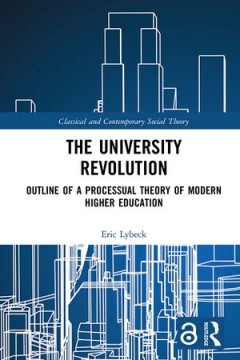
The University Revolution: Outline of a Processual Theory of Modern Higher Ed…
Few institutions in modern society are as significant as universities, yet our historical and sociological understanding of the role of higher education has not been substantially updated for decades. By revisiting the emergence and transformation of higher education since 1800 using a novel processual approach, this book recognizes these developments as having been as central to constituting t…
- Edition
- -
- ISBN/ISSN
- 9781351017541
- Collation
- -
- Series Title
- -
- Call Number
- 301 LYB u
 Computer Science, Information & General Works
Computer Science, Information & General Works  Philosophy & Psychology
Philosophy & Psychology  Religion
Religion  Social Sciences
Social Sciences  Language
Language  Pure Science
Pure Science  Applied Sciences
Applied Sciences  Art & Recreation
Art & Recreation  Literature
Literature  History & Geography
History & Geography